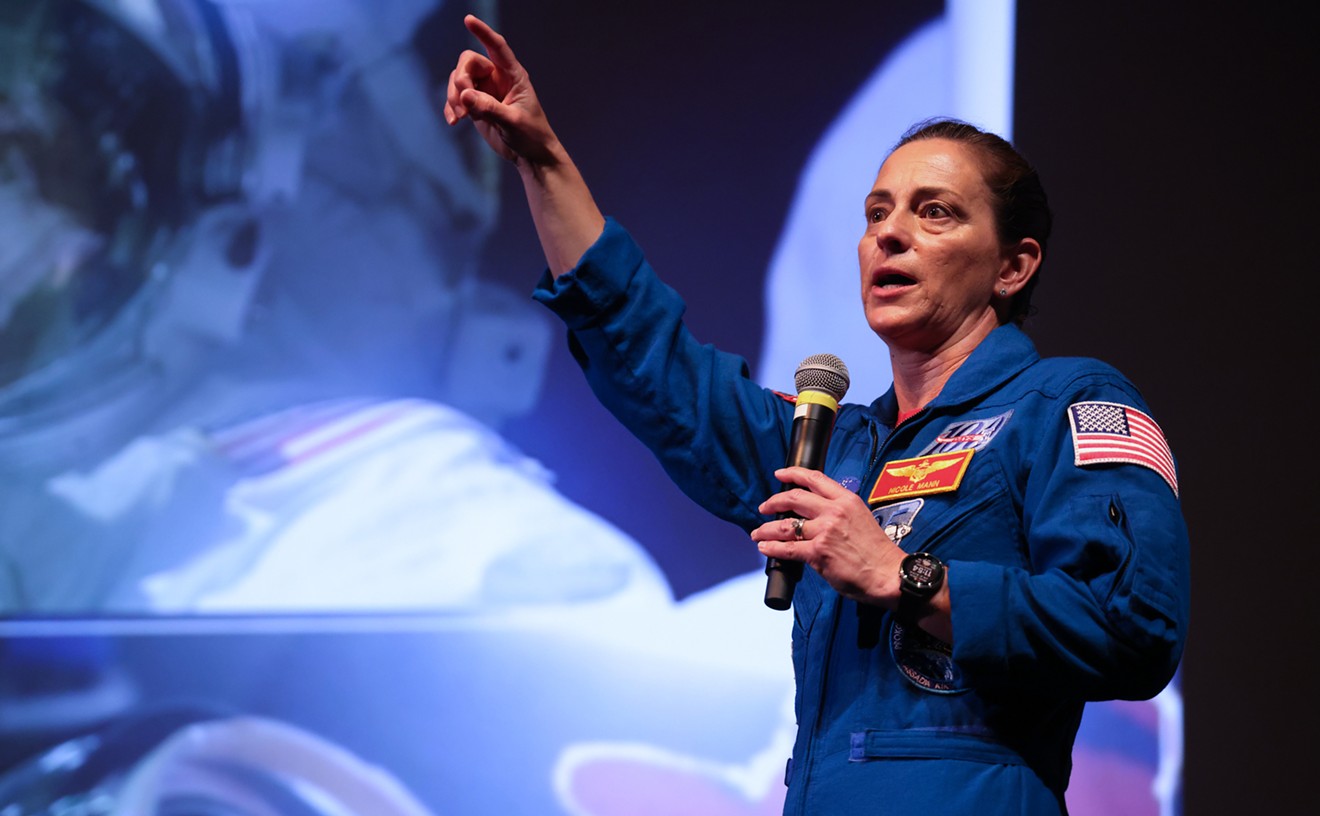This is not the primary lesson of "Colonization of La Lengua: A Reclamation," an art installation in which cow tongues -- real ones, dehydrated and varnished -- are staked to school desks with American flags. But it is an irony that reinforces the exhibit's obvious symbolism. Artists (and sisters) Elisa and Andrea Johns, who conceived the show as a form of protest to the English-only initiative Proposition 203, acknowledge this layered meaning.
"It's a play on a lot of things," Andrea says of the cow-tongue motif. It implies that students in Arizona schools who do not speak English, who under Proposition 203 will not be taught in bilingual education programs, "are treated like cattle who can be herded and branded as one homogeneous mass." It also suggests that "your language and use of words is not separate from who you are physically," she says.
Andrea Johns will graduate from Yale next spring with a bachelor's degree in American Studies; she researched bilingual education for a school project last year. Elisa is an artist -- but she has also worked as a substitute teacher in Phoenix schools. The portraits that hang above "La Lengua's" desks are of students, captured by Elisa's camera, in the Osborn district's bilingual education classes. They are compelling and diverse.
"La Lengua" aims to revive a spirit of protest before the start of the upcoming school year, in which the principles of Proposition 203 will be implemented but first, crucially, interpreted. However, more than galvanizing opponents of the law, the Johnses hope to refocus the debate surrounding it.
"We were pretty angry about the way the campaign was handled on both ends," says Andrea.
Proposition 203 polarized voters on the question of bilingual education, but it did not address fundamental problems like funding disparities between school districts. And neither proponents nor opponents of the measure questioned the need for immigrant children's assimilation; English is "the language of economic opportunity." Yet with the high salaries commanded by bilingual professionals and police officers, the Johnses point out, speaking more than one language can be to great economic, let alone cultural, benefit.
It's a fact noticed only in high school, Andrea says, when "suddenly, sophomore year they tell you, 'Go learn Spanish.'"










